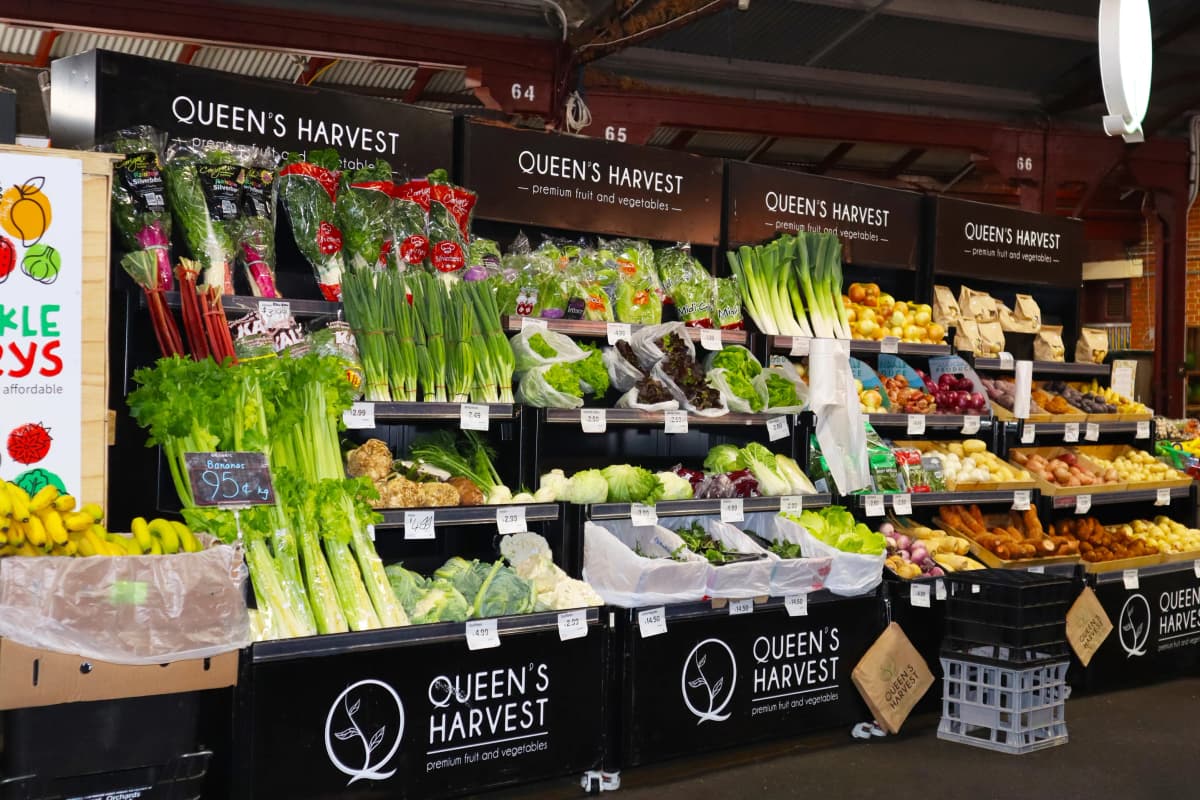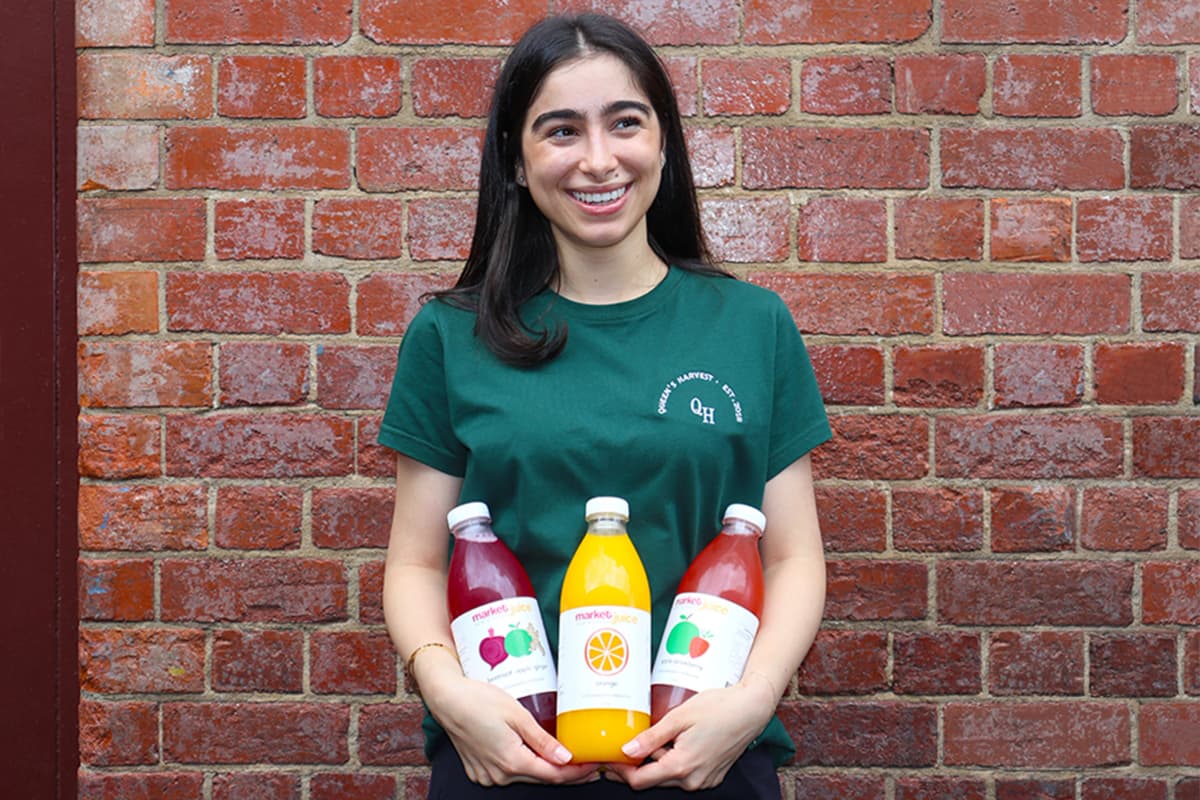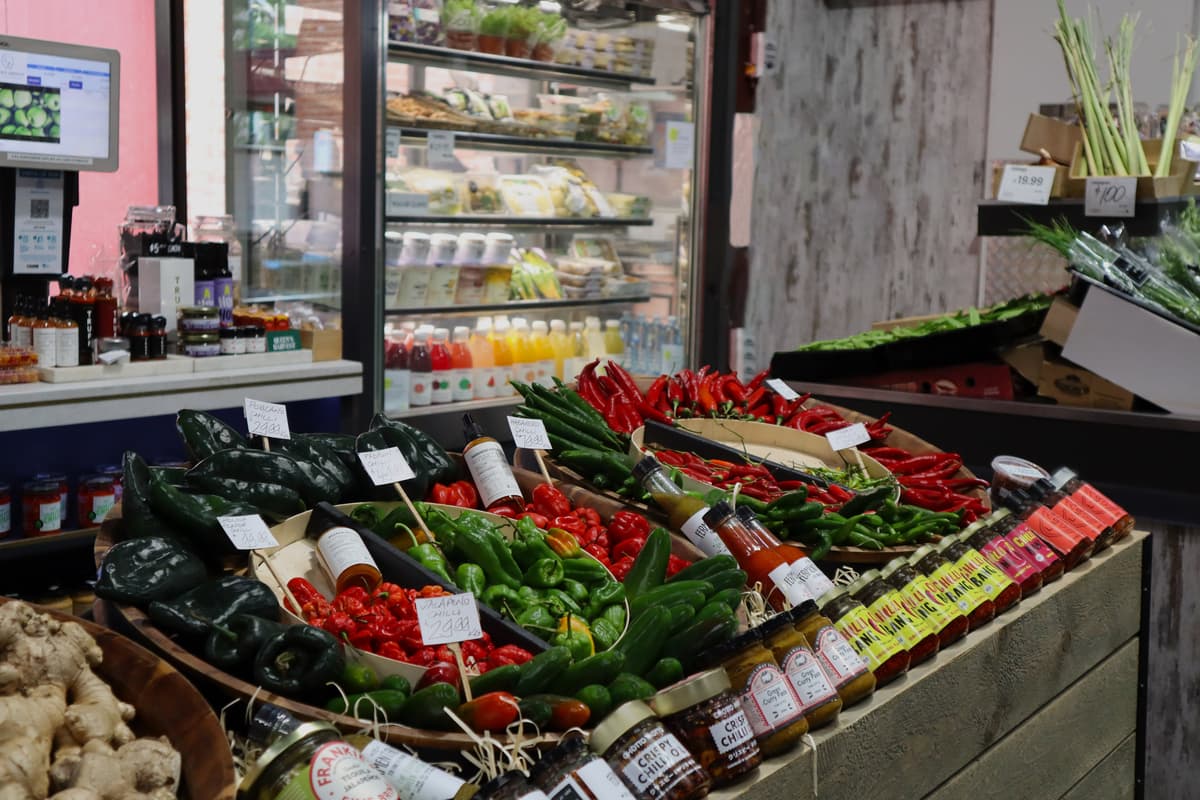- Case Studies
Meet The Tripodis: Iconic Melbourne Providores Talk Business Evolution
Generational family businesses are a special kind of operation.
The Tripodi family has been trading at Melbourne’s famous Queen Victoria Markets for over 60 years. From humble beginnings as fresh fruit and vegetable providores, the Tripodis have adapted to the times and found highly successful ways to diversify and grow the family business – from creating a new brand of freshly squeezed juice, to offering Melburnian’s a taste of Indigenous Australia, Italy, Spain, and beyond.
Three generations have worked the cash register since the 1960s; a summer job turned life-long career for cousins and siblings alike. Natalie Tripodi is part of that third generation, helping to grow the business into new, complementary avenues.
We sat down with Natalie to learn more about the evolution of the family business, lockdown-born cooking habits, and the special place the Queen Victoria Market holds in her heart.
How has business changed through the generations?
My grandparents started providoring fruit and vegetables back in the 1960s. When my uncle and dad got involved, the business developed. As a member of the next generation of the family business, I’ve done the same and helped to develop parts of our business in my own way — offering my own input, which can sometimes uncover a completely different perspective.
Over the years, the family business has grown beyond fruit and veg. In 2001, Market Juice was born — and now our own well-known products are stocked in local Melbourne cafes, including institutions like Auction Rooms and Seven Seeds.
We’ve recently introduced a range of juices we call “the cocktail range”, because who doesn’t love a margarita or three on a night out? Our juices make bartenders’ lives easier. Instead of squeezing hundreds of lemons and limes, they can reach for their bottle of Market Juice — it’s the same thing. And it’s all completely natural, so you’re not getting any preservatives or added sugar.
What’s your next business project?
Queen’s Harvest is our new baby — it’s our high-end, specialty produce store. Think black garlic, white strawberries, finger limes. The family has always been in fruit and veg, so we thought — why not take it up a notch?



Myself and my uncle consider ourselves some pretty fancy foodies. We’re constantly researching and keeping an eye out for anything new and upcoming. We love searching for new products and curating new collections — we’re always brainstorming, and thinking about what new and exciting products we can bring to our customers.
How have the lockdowns affected the business's growth plans?
We’ve actually noticed Melburnians have become more adventurous, especially during the lockdowns. People weren’t able to dine out, so they started getting more creative in their own kitchens. I had a customer buy one of everything, simply because they hadn’t tried the products before. The customers’ curiosity and excitement makes us want to constantly do better, and bring them something new and exciting week after week.
Queen’s Harvest has already become a one-stop-shop for anything unusual, different or quirky. We get everyone from home cooks and amateur chefs, to local restaurateurs and some big-name celebrity chefs you’ve probably spotted on TV.
Where do you source products from?
If it’s not a specialty product coming from Spain, Italy or the United States — like our white and black truffles, gourmet potato chips, and hot sauce — it’s 100% Australian. More often than not, our produce is very local. The Bippi chilli condiments are from a small-batch producer in Coburg, which is 20 minutes out of the city. We also stock a wide range of Mabu Mabu products, such as Wattleseed Hot Chocolate and Strawberry Gum, made by Nornie Bero in Yarraville — just a few suburbs away.
We’re always looking out for quality, locally-produced products, as well as special and exclusive imports that we can exclusively stock.
What does the Queen Victoria Market mean to you?
The Queen Victoria Market has been a big part of my childhood. I remember spending most weekends and school holidays there, working alongside my brothers and cousins when we were young. While they weren’t the typical school holiday plans, we loved being in each other’s company and always found a way to make work fun.
“For me, it’s also about honouring where it all began.”
We retailed in A Shed for over 60 years, and at the very same stall my grandparents established in the 1960s. It’s an honour to follow their lead and work towards growing and developing the business that began so humbly.
You’re getting customers who really appreciate good quality produce. And it’s in the heart of Melbourne CBD; we’re lucky to be in such an incredible position, where we welcome the next generation into the market and welcome in fresh ideas and new perspectives, while still remaining true to the heritage of the market. It breeds this element of family and community like nothing else.
What are some of the biggest challenges of operating at the markets?
The fact people are increasingly shifting towards card payments means it’s important to have a reliable provider. When our old terminal, provided by one of the big banks, would stop working we’d have to call them and they’d send out a replacement, but we wouldn’t be able to accept card payments until it arrived.
Also, the Queen Victoria Markets is an open-air environment, so it’s hard to say whether Wi-Fi will always be reliable. On a busy weekend, if there was an outage, we couldn’t accept cards. We had to send customers to the ATM, which is an inconvenience. Sometimes they’d say “don’t worry about it”, and leave empty-handed. Who wants to line up to get cash out?
“To have a reliable provider has been a game-changer.”
Zeller has saved the day. It’s just tap, and go. A lot of people pay with their smartwatches and even rings. Gone are the days that people carry wads of cash around. It doesn’t happen. Now, we’re able to accept the full range of cards — including AMEX and JCB cards.
How has your experience been with Zeller?
Initially, the cost savings compared to the big four banks was our motivation to switch. We’ve had other companies approach us, but none of them had the features of Zeller and the simplicity in switching over has made things so easy.
My uncle is incredibly busy and doesn’t always have the time to fuss over technology, so the level of service the Zeller Sales team provided was a huge help. It’s so nice to make a personal connection with the people behind a business — that’s what we pride ourselves on with our own customers, too.
It’s an incredible bonus to work with a payments provider that actually cares, and has a team that can come down to the market and see us. It makes us feel more connected — we’re not just a number, we’re a name.

Let us help your business grow.
Zeller Sales is here to help you succeed.
Leave your contact details and we’ll be in touch soon.
By sharing your details with us, we may contact you from time to time. We promise we won’t bug you — and you can unsubscribe from communications at any time.



